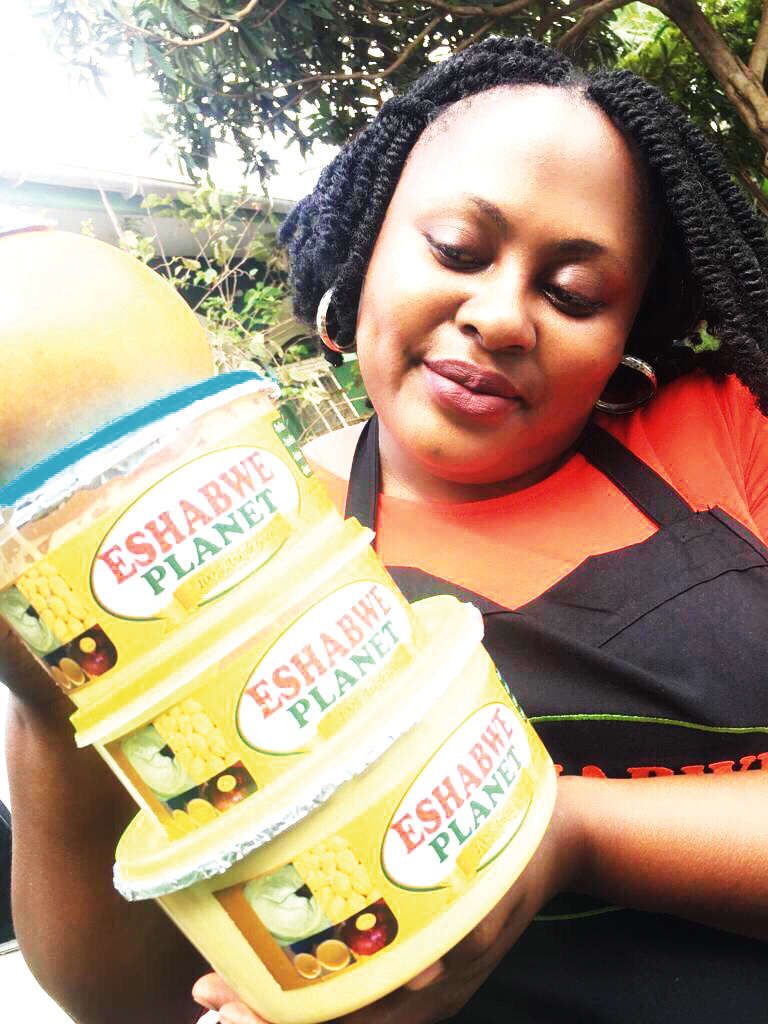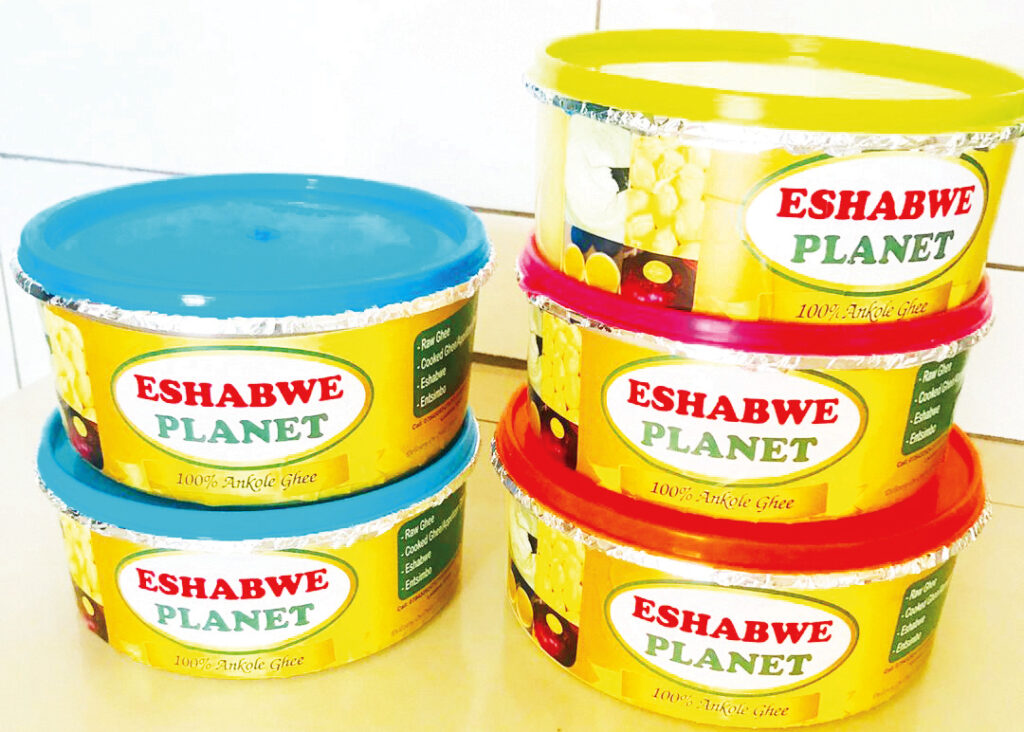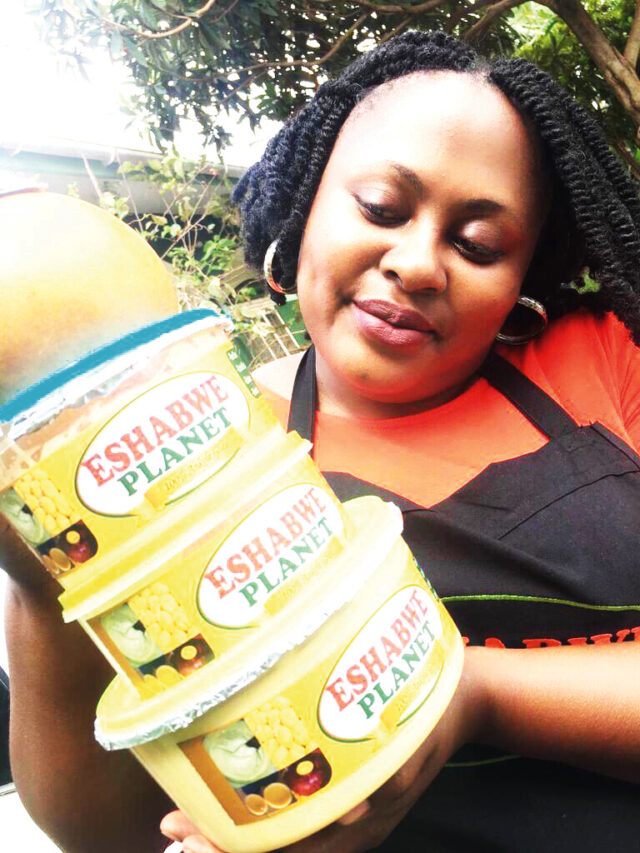Christine Murungi’s ghee and eshabwe experiences go as far as her childhood. Hailing from Mbarara City, she grew up in a ghee consuming household, yet little did she know this would in future be her source of income. She narrated her business experience to Catherine Male.
Starting
After pursuing her bachelors degree in Procurement and Logistics Management from Makerere University Business School in 2015, Murungi started working at a liquor dealership supermarket with her family, where she exercised her professional knowledge.
However, following the adverse effects of the 2021 Covid-19 second lockdown, the branch she was managing closed. That was when Murungi conceived the idea of selling ghee and making eshabwe, since she realised these were rare on market.
“Due to unemployment and other effects of the second lockdown, I looked at selling something that is rare on the market yet is on demand. I looked no further than ghee and eshabwe for the central region clients. I tried it and it worked perfectly,” she says.
Murungi did not want to invest a lot of money in something whose success she was uncertain about. Thus, she first put out adverts on Facebook. This helped her to assess the product demand and what quantity to start with.
The young entrepreneur gets her ghee from Ibanda, her home district or from her relatives in Kashari and Mbarara districts.
She started with 1kg of ghee, which she bought at shs 20,000 and went on to 5kgs, then to 10kgs.
Although she already knew much about her products, she had to perfect her technique of making eshabwe, in order to keep a good standard.
She practiced and consulted her mother for guidance where she got stuck.

How she works
“Eshabwe is not something you make and store for long; so, I take in orders prior to supply day. My delivery time starts at midday. I start making the eshabwe on the day of delivery, which takes me about 30 minutes to 2 hours, depending on the quantities required,” Murungi says.
She adds that she also prepares cooked ghee on order, and makes it a day before delivery, so as to give it time to cool and solidify.
Raw ghee can be delivered any time of the day, but mainly between midday and 4:00pm just like eshabwe.
She charges Shs 23,000 for a kilogram of raw/uncooked ghee and Shs 30,000 for a kilogram of cooked ghee.
Eshabwe goes for Shs 10,000 for 500grams, Shs 20,000 for 750grams and Shs 30,000 for one litre.
She charges extra Shs 5,000 for those that want roasted meat commonly known as Omukaro in the eshabwe.
Santrina Kyasiimire, a client to Murungi, says her products are tasty and genuine.
“Honestly her products are genuine. They do not have any other additives like other brands on the market. Eshabwe is my favorite, and it is really thick, tastier and takes long to expire,” Kyasiimire says.
Achievements
Murungi says: “My business is less than a year old, but it has helped me pay my small bills. My social media accounts have also grown and in turn introduced me to a number of big people in business that have taught me a lot.”
She attributes her success so far to her family and friends, who share her business posts on their social media platforms.
She points out that her growing experience and education background have also contributed to the business’ growth; through areas like bargaining skills, decision making and customer relation skills.
Challenges
Just like any other business, this one too is not a walk in the park.
The ghee and eshabwe investment is challenged by the fluctuating prices of milk.
Murungi says this makes setting prices for the products difficult because they vary according to the season.
During the dry season, milk prices are hiked and this increases the ghee and eshabwe prices.
“The price of milk determines the quality and the price of ghee which is always high in the dry seasons, forcing me to increase my prices, too,” she says.
Murungi, however, reveals that this does not go well with some customers.
She says her customers are burdened by the delivery fees because some of them order from far and the delivery location determines the delivery charges.

Prospects
Murungi plans to expand her business beyond the central region; introducing the best quality of ghee and eshabwe even in areas where the product is least known and consumed.
She also wants to get a physical location because she mainly operates online.






















